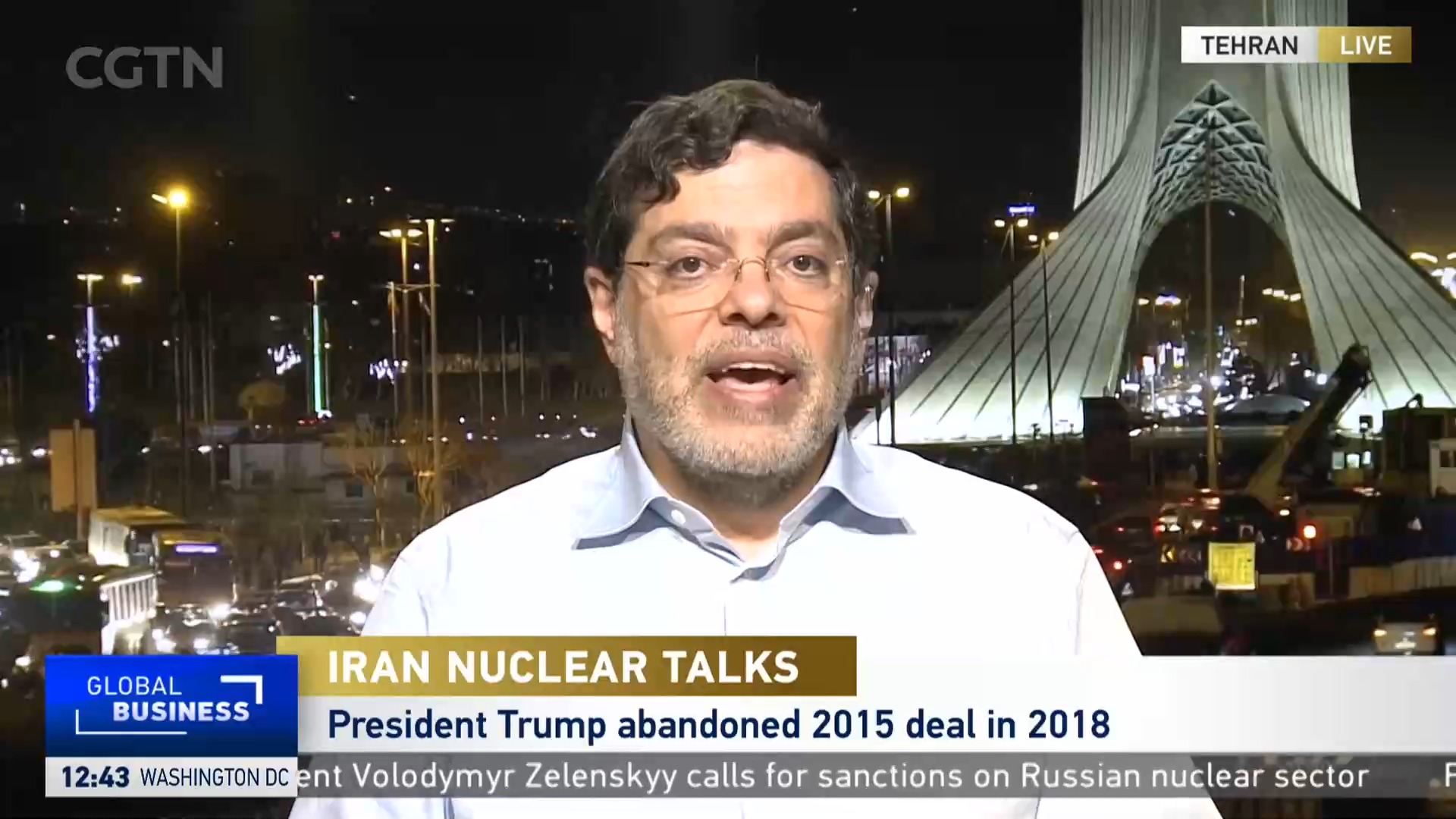04:31

Iran wants a deal on its nuclear program 'as soon as possible,' but doesn't want to be trapped into a bad deal, according to an advisor to its negotiatiing team.
U.S. President Joe Biden's administration has been trying to resurrect the 2015 Iran nuclear deal, named the Joint Comprehensive Plan of Action (JCPOA), which was abandoned by Biden's predecessor Donald Trump in 2018.
Under the deal, Tehran limited its nuclear program in exchange for relief from U.S., EU and UN sanctions.
Despite recent negotiations, an agreement is yet to be reached.
READ MORE
CGTN special: Cost-of-living crisis across Europe
Meet the 'sappers' dealing with Ukraine’s unexploded bombs
Which food has the worst environmental impact?
"A lot has been achieved over the last seven, eight months and the text that the Americans and the Europeans had envisaged back then is very different from what we have today," Seyed Mohammad Marandi, Iran's negotiating team adviser, told CGTN Europe.
He cautioned that given that "Iran has a very, very problematic past with the United States and the Europeans when it comes to the JCPOA", it is important to understand "the Iranians want to make sure that the United States cannot repeat history without paying a price for doing so."
Marandi explained that from the Iranians' point of view, there are a couple of issues that still need to be resolved for them to be "comfortable with the deal" and have the confidence that it will be "implemented in full".

A man reads the Iranian newspaper Etemad, with the front page title reading in Farsi "The night of the end of the JCPOA ", and cover photos of Iran's Foreign Minister Hossein Amir-Abdollahian and chief nuclear negotiator Ali Bagheri Kani, in the capital Tehran. /Atta Kenare/AFP
A man reads the Iranian newspaper Etemad, with the front page title reading in Farsi "The night of the end of the JCPOA ", and cover photos of Iran's Foreign Minister Hossein Amir-Abdollahian and chief nuclear negotiator Ali Bagheri Kani, in the capital Tehran. /Atta Kenare/AFP
Meanwhile, the U.S. State Department said earlier in the week that the only way to revive the agreement is for Tehran to abandon its extraneous demands, saying Washington believes everything that can be negotiated already has been.
State Department spokesman Ned Price told a briefing the U.S. would provide its response to the European Union's "final" text on reviving the deal in private but gave no timeline.
"Iranians would like to have a deal as soon as possible but the Iranians want to make sure that they don't fall into the trap of a bad deal. If the Americans have the sort of loopholes that they are looking for, the Iranians have no doubt that the Americans will use that ultimately to undermine the deal .... If we expect the Americans to behave any differently, we'd be very naive," said Marandi
"So, the side that has to convince the other side that it's being honest is the United States and, of course, the Europeans. Because even though the Europeans nagged and complained about Trump's policies, they obeyed Trump from [the] beginning to [the] end. They sanctioned Iran, just like the United States, out of either fear for Trump or out of a sense of traditional solidarity with the United States," he added.

